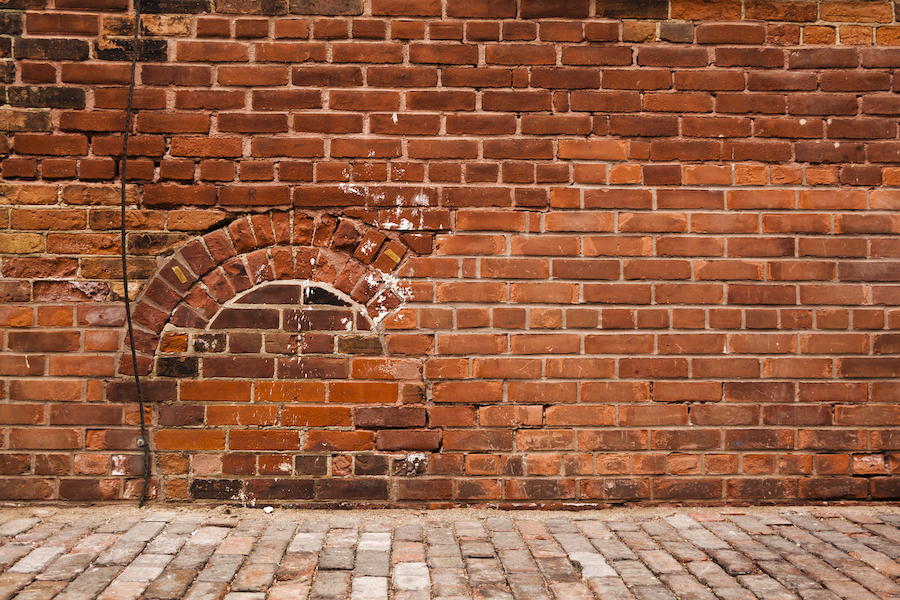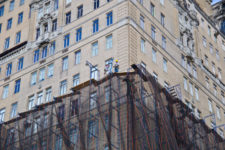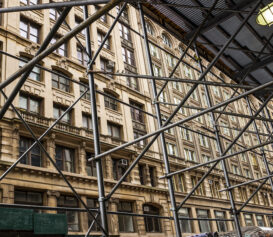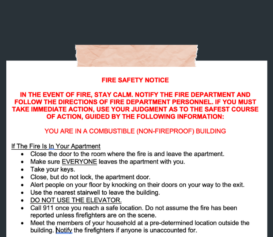Agencies have released two new NYC proposed rules, with upcoming hearings this month. We dive into the details on both below.
A quick reminder – these rules are proposed, and haven’t been finalized just yet. We’ll keep you posted when the final rules are…well, posted – and let you know about any changes.
Parapet Inspections
The Department of Buildings is following up on Local Law 126 of 2021, which went into effect November 2022. This law required building owners to perform an annual “parapet observation.”
Parapets are defined in the rule as “the part of any wall entirely above the roof line.” These rules specify requirements for the observation (inspection) process, and resulting report. In general:
- Owners are required to hire qualified professionals or “another person capable of identifying hazards” to inspect and identify any dangerous conditions
- Potential inspectors are listed (but not limited to) “a bricklayer, building superintendent, handyman, mason or a person in a similar construction-related trade, architect, engineer,” or the above capable person
- Public protections must be installed upon finding an unsafe condition, and remain in place until said condition is corrected
- Per the rule summary, “The proposed parapet observation requirement would apply to all buildings fronting the right-of-way, regardless of height, except for detached 1- or 2-family homes”
- Another exception would be buildings with a “fence or other barrier preventing access to the exterior wall”
While reports must be made including specific details, the proposed rule notes that “Owners must maintain the observation reports for at least six (6) years and must make such reports available to the Department upon request.” No mention is made of submitting the reports to the DOB annually, or at any other frequency. Stay tuned for any updates here.
This rule would go into effect July 1, 2023. See more details and how to join the hearing at the proposed rule, linked here.
Self-Closing Door Inspections
HPD is proposing specific rules to self-closing door inspections, in accordance with Local Law 71 of 2022.
Per the law, “HPD must annually select 300 buildings for inspections of self-closing doors pursuant to criteria established by rule.” This proposed rule specifically outlines how buildings are chosen for this process:
- More than 6 dwelling units, and must meet “at least” one of the below criteria:
- Buildings having at least one complaint on record with HPD for self-closing doors within 3 years prior to selection
- Buildings with more than five heat complaints on record with the Department in each of the three heat seasons prior to selection
- Buildings with at least one fire-safety related violation issued by the Department of Buildings within the three years prior to selection
- Buildings that have failed to file an annual boiler report with the Department of Buildings, where applicable, within the three years prior to selection
Additionally:
- From the above criteria, HPD will prioritize including properties built prior to 1999
- They will further prioritize selection of buildings in consultation with the FDNY
The annual program shall not include the following:
- Properties that are “currently the subject of a court order appointing or a proceeding brought by the Department seeking the appointment of an administrator pursuant to article 7-A of the real property actions and proceedings law”
- Properties that have been included “in the alternative enforcement program pursuant to section 27-2153 of the administrative code and has not been discharged from such program”
- Properties that are currently active in and subject of an order under the Underlying Conditions Program
- Properties that have been inspected by HPD “under the annual self-closing door inspection program provided in these rules within the last five years”
- Properties that have “had an inspection of a public part, as defined in administrative code §27-2004(20), by the Department within the three years preceding selection for inspection, including, but not limited to, such inspections conducted by specialized enforcement program units within the Department.”
Once selected, HPD will send a notice to the owner/managing agent informing them of the same, and the requirement that “self-closing doors must be maintained and kept in good repair.” As of now, there are no details on what it looks like once you’re included in the program.
This rule is unique in that it touches on criteria and collaboration between three agencies – HPD, DOB, and the FDNY. It’s especially interesting that some criteria hinges on already-required inspections from the DOB (annual boiler filings). It’s possible that future rules could continue this trend.
The hearing for this rule is scheduled for June 27th – check out the full text of the proposed rule for more details.
Bonus: More DSNY Waste Rules
A bonus section, for folks who made it to the end! The DSNY has two more waste-related rules – specifically:
- Source separation of yard waste/commingling of organic waste (adopted, in effect June 30, 2023)
- Continuation of Queens program for curbside composting now, through the addition of Manhattan in October 2024. Owners/managers of residential buildings with 4 or more units must designate space for the storage of yard waste and provide appropriate containers for the storage of such materials. That said, the summary states, “While this rule does not require that owners or managers of buildings with four or more residential units provide for the separation and storage of organic waste other than yard waste, DSNY encourages owners and managers of such properties to provide adequate and appropriate storage areas and containers for all organic waste, including food scraps and food-soiled paper products.”
- Receptacles for food-related businesses (proposed, hearing scheduled June 22, 2023)
- This would require that “all food-related businesses must set out any putrescible solid waste, including refuse and organic waste, at the curb for private carter collection in rigid receptacles with tight-fitting lids.” Additionally, the proposed rule would not apply to recyclable materials other than organic waste. The proposed rule would also not apply to food-related businesses that receive off-street collection, including collection that takes place in a loading dock.
We’ll let you know if and when the latter rule makes it past the proposal stage.





